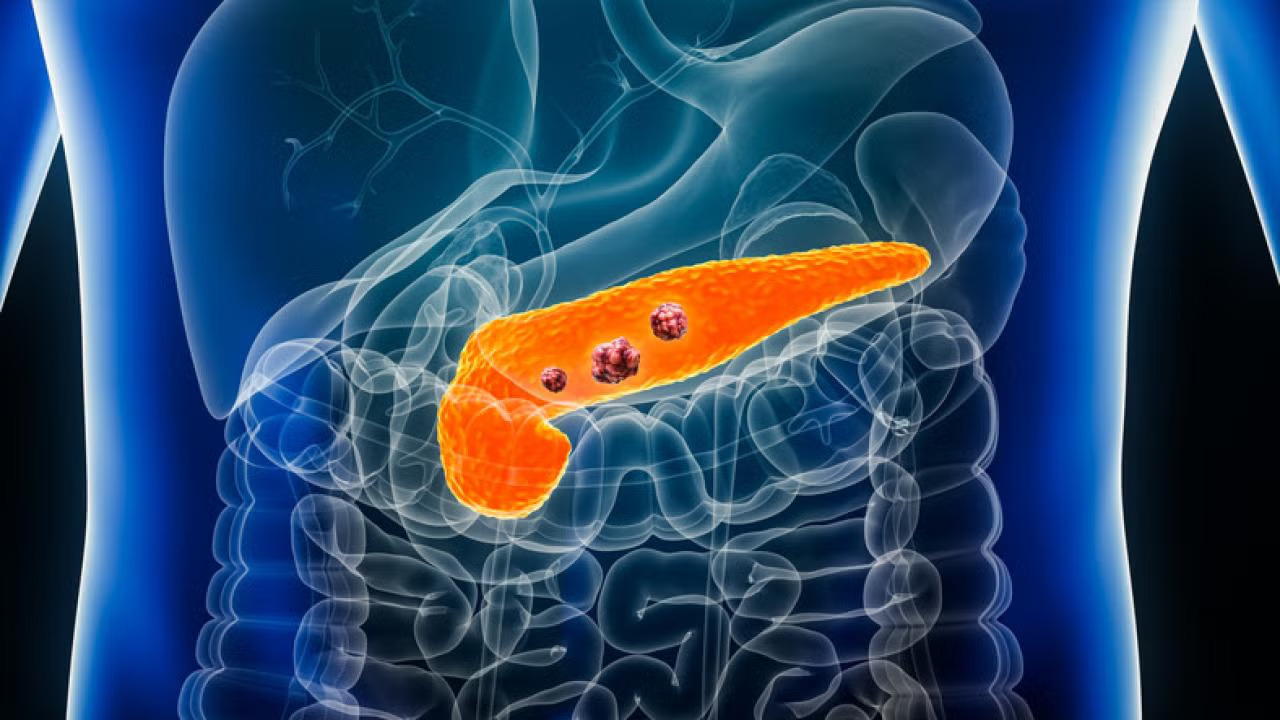
Could Dietary Changes — Even After Obesity — Help Prevent Pancreatic Cancer?
Mouse Study Finds Switching From a High-Fat to a Low-Fat Diet Slowed Precancerous Changes in the Pancreas
Pancreatic cancer is one of the deadliest forms of cancer, killing 87% of patients within five years. Previous studies have shown that obesity can increase pancreatic cancer risk by around 50%. In a new study from the University of California, Davis, researchers showed evidence that switching from a high-fat diet to a low-fat diet slowed pancreatic precancer development in mice, even after weight gain and precancerous changes began. The research was published in the Journal of Nutrition.
“This study shows that managing excess body weight is very important,” said corresponding author Gerardo Mackenzie, professor and chair of the UC Davis Department of Nutrition. “Our findings suggest that it may never be too late to make a dietary change and still have a meaningful impact on cancer progression.”
Diet-based intervention
The study used a mouse model designed to mimic pancreatic cancer development. The mice were fed either a high-fat diet or a low-fat diet for 21 weeks. A third group was fed a high-fat diet for the first eight weeks, then switched to a low-fat diet for 13 weeks. The mice that stayed on the high-fat diet gained more weight and showed early signs of cancer in the pancreas. The mice that switched diets saw weight return to healthy levels and avoided accelerated precancerous changes in the pancreas.
The researchers also observed changes in the gut microbiome, gene expression and intercellular communication — factors known to influence cancer risk — that appeared to normalize after switching diets.
“I think there is a huge potential for lifestyle changes, like changing one’s diet, to really change what’s happening on the cellular level,” said first author Joanna Wirkus, a doctoral candidate in the Department of Nutrition.
As a registered dietitian, Wirkus said she knows it’s not easy to go on a weight loss diet and maintain the lower weight.
“With the right support, it is possible to manage one’s weight,” she said. “I would encourage people to know that diet is a really powerful tool for improving overall health.”

Focus on fat, not sugar
The study used a high-fat, low-sugar diet — intentionally isolating the impact of fat from the effects of sugar, which are often combined in Western diets. That allowed researchers to more clearly identify how dietary fat alone contributes to obesity and cancer risk.
Previous research often used high-fat, high-sugar diets in animal models. But when researchers tried moderate-fat diets without sugar, the mice didn’t become obese.
While the findings are encouraging, Wirkus is careful to point out that this is a preclinical mouse study, not a prescription for people.
“It’s very difficult to study early pancreatic cancer risk in humans. You can’t just biopsy a healthy pancreas,” she said. “That’s why these models are so important.”
Other authors of the study include Aya Ead, Irena Krga, Yige Wang and Guodong Zhang from UC Davis; Karen Matsukuma from the UC Davis Comprehensive Cancer Center; and Matthew Pontifex, Michael Muller and David Vauzour from University of East Anglia, Norwich, United Kingdom.
Support for the research came from the United States Department of Agriculture’s National Institute for Food and Agriculture, the Academy of Nutrition and Dietetics and the National Cancer Institute.
Media Resources
Media Contacts:
- Gerardo Mackenzie, UC Davis Department of Nutrition, ggmackenzie@ucdavis.edu
- Joanna Wirkus, UC Davis Department of Nutrition, jwirkus@ucdavis.edu
- Amy Quinton, News and Media Relations, amquinton@ucdavis.edu, 530-601-8007
